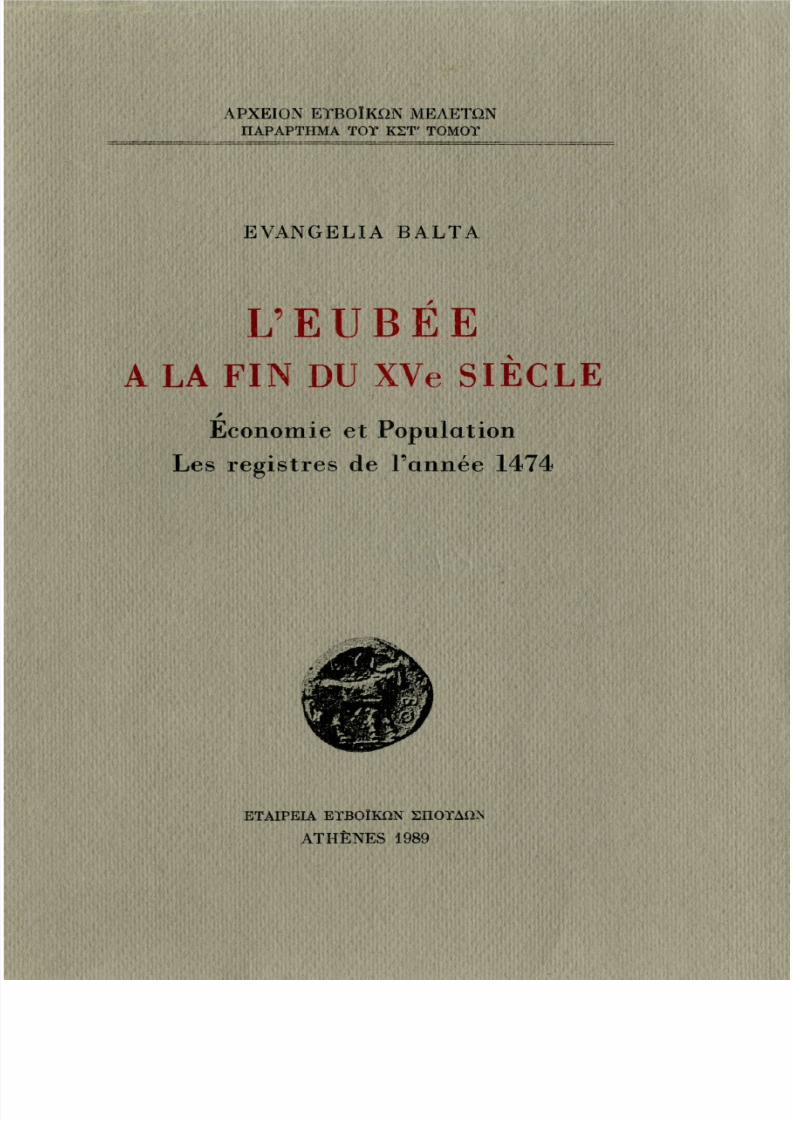The Slavic presence was insigificant in the island even though existent, the biggest demographic change came with the Albanians in the 15th century.
''Unlike much of Byzantine Greece, Euboea was spared the bulk of the barbarian raids during Late Antiquity and the early medieval period, due to its relatively isolated location. The Vandals raided its shores in 466 and in 475, but the island seems to have been left alone by the Avars and Slavs, and it was not until a failed Arab attack on Chalcis in the 870s that the island again came under threat.[6] As a result, the island preserved a relative prosperity throughout the early medieval period, as attested by finds of mosaics, churches and sculpture throughout the 7th century, "even from remote areas of the island". ''
''Mit spürbarer Genugtuung bemerkte Fallmerayer noch für sich, daß der ganze Süden Euböas albanesisch sei und es auch im Norden ein Bächlein mit dem slawischen Namen Bistrica gebe''
With noticeable satisfaction, Fallmerayer remarked for himself that the entire south of Euboea was Albanian and that there was also a brook with the Slavic name Bistrica in the north.
The number of Slavic placenames are quite a few. Anyways I believe most of the Albanian speakers of the north were assimilated by around (add or take 15 years to those dates) by 1700-1800. But that's my opinion not something I can prove myself.
''Unlike much of Byzantine Greece, Euboea was spared the bulk of the barbarian raids during Late Antiquity and the early medieval period, due to its relatively isolated location. The Vandals raided its shores in 466 and in 475, but the island seems to have been left alone by the Avars and Slavs, and it was not until a failed Arab attack on Chalcis in the 870s that the island again came under threat.[6] As a result, the island preserved a relative prosperity throughout the early medieval period, as attested by finds of mosaics, churches and sculpture throughout the 7th century, "even from remote areas of the island". ''
''Mit spürbarer Genugtuung bemerkte Fallmerayer noch für sich, daß der ganze Süden Euböas albanesisch sei und es auch im Norden ein Bächlein mit dem slawischen Namen Bistrica gebe''
With noticeable satisfaction, Fallmerayer remarked for himself that the entire south of Euboea was Albanian and that there was also a brook with the Slavic name Bistrica in the north.
The number of Slavic placenames are quite a few. Anyways I believe most of the Albanian speakers of the north were assimilated by around (add or take 15 years to those dates) by 1700-1800. But that's my opinion not something I can prove myself.












Comment